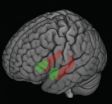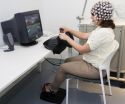(Press-News.org) Alexandria, Va. — "Hello World." Upon hearing that brief message, scientists at the European Space Agency (ESA) and followers around the world sent up a collective cheer. Rosetta — the ESA spacecraft currently on a 10-year mission to orbit and land on a comet — awoke in January after a three-year hibernation, and was ready to get to work.
The Rosetta spacecraft launched on March 2, 2004, to study Comet 67P/Churyumov-Gerasimenko. In August, Rosetta will enter the comet's orbit. By November, scientists will plant a lander on the comet, in the hope of learning more about the conditions at the dawn of our solar system.
Read all about Rosetta's mission and what scientists hope to learn about our origins in the July issue of EARTH Magazine: http://bit.ly/TpKFcP.
For more stories about the science of our planet, check out EARTH Magazine online or subscribe at http://www.earthmagazine.org. The July issue, now available on the digital newsstand, features stories on preserving a petrified forest in Peru, creationism coming to the county fair, and Triassic fossils showing live birth, plus much, much more.
INFORMATION:
Keep up to date with the latest happenings in Earth, energy and environment news with EARTH magazine online at: http://www.earthmagazine.org/. Published by the American Geosciences Institute, EARTH is your source for the science behind the headlines.
The American Geosciences Institute is a nonprofit federation of 49 geoscientific and professional associations that represents more than 250,000 geologists, geophysicists and other earth scientists. Founded in 1948, AGI provides information services to geoscientists, serves as a voice of shared interests in the profession, plays a major role in strengthening geoscience education, and strives to increase public awareness of the vital role the geosciences play in society's use of resources, resiliency to natural hazards, and interaction with the environment.
EARTH Magazine: Rosetta off to decipher a comet's secrets
2014-06-27
ELSE PRESS RELEASES FROM THIS DATE:
Early life stress can leave lasting impacts on the brain
2014-06-27
MADISON, Wis. — For children, stress can go a long way. A little bit provides a platform for learning, adapting and coping. But a lot of it — chronic, toxic stress like poverty, neglect and physical abuse — can have lasting negative impacts.
A team of University of Wisconsin-Madison researchers recently showed these kinds of stressors, experienced in early life, might be changing the parts of developing children's brains responsible for learning, memory and the processing of stress and emotion. These changes may be tied to negative impacts on behavior, health, employment ...
Are conservatives more obedient and agreeable than their liberal counterparts?
2014-06-27
Over the last few years, we've seen increasing dissent among liberals and conservatives on important issues such as gun control, health care and same-sex marriage. Both sides often have a difficult time reconciling their own views with their opposition, and many times it appears that liberals are unable to band together under a unifying platform. Why do conservatives appear to have an affinity for obeying leadership? And why do conservatives perceive greater consensus among politically like-minded others? Two studies publishing in Personality and Social Psychology Bulletin ...
Extinct undersea volcanoes squashed under Earth's crust cause tsunami earthquakes, according to new research
2014-06-27
New research has revealed the causes and warning signs of rare tsunami earthquakes, which may lead to improved detection measures.
Tsunami earthquakes happen at relatively shallow depths in the ocean and are small in terms of their magnitude. However, they create very large tsunamis, with some earthquakes that only measure 5.6 on the Richter scale generating waves that reach up to ten metres when they hit the shore.
A global network of seismometers enables researchers to detect even the smallest earthquakes. However, the challenge has been to determine which small ...
Climate change and the ecology of fear
2014-06-27
Climate change is predicted to have major impacts on the many species that call our rocky shorelines home. Indeed, species living in these intertidal habitats, which spend half their day exposed to air and the other half submerged by water, may be subjected to a double whammy as both air and water temperatures rise. Given the reliance of human society on nearshore coastal ecosystems, it is critical that we better understand how climate change will affect them.
In a recent study published in Global Change Biology, Northeastern University professor Geoffrey C. Trussell, ...
New report evaluates progress of comprehensive everglades restoration plan
2014-06-27
WASHINGTON – Although planning for Everglades restoration projects has advanced considerably over the past two years, financial, procedural, and policy constraints have impeded project implementation, says a new congressionally mandated report from the National Research Council. Timely authorization, adequate funding levels, and creative policy and implementation strategies are needed to achieve restoration benefits and to expedite implementation of the Central Everglades Planning Project. Climate change and the invasion of nonnative plant and animal species further challenge ...
USAMRIID research sheds light on how deadly lassa virus infects cells
2014-06-27
Scientists have discovered that the Lassa virus, which is endemic to West Africa, uses an unexpected two-step process to enter cells. The results, published in today's edition of the journal Science, suggest that the mechanism by which Lassa virus causes infection is more complicated than previously known.
An international team of scientists from the Netherlands Cancer Institute, Harvard Medical School, the University of Kiel in Germany, and the U.S. Army Medical Research Institute of Infectious Diseases (USAMRIID) collaborated on the study, which could lead to new approaches ...
AJMC publishes results showing big data analytics can predict risk of metabolic syndrome
2014-06-27
CAMBRIDGE, Mass. and HARTFORD, Conn. – June 27, 2014 – Research published today in the American Journal of Managed Care demonstrates that analysis of patient records using state-of-the-art data analytics can predict future risk of metabolic syndrome. More than a third of the U.S. population has metabolic syndrome, a condition that can lead to chronic heart disease, stroke and diabetes. These conditions combine to account for almost 20 percent of overall health care costs in the U.S. The study was conducted by Aetna (NYSE: AET) and GNS Healthcare Inc. (GNS), a leading provider ...
Prevention incentives
2014-06-27
A spoonful of sugar helps the medicine go down—and so do movie tickets, cell phone minutes and discounts on airline flights.
A private South African health plan increased patient use of preventive care such as mammograms and influenza vaccine with a program that incentivized healthy behavior using discounts on retail goods and travel. The study, which was led by researchers at Harvard Medical School and the RAND Corporation, was published today in The American Journal of Managed Care.
"Even though most people know that preventive care is important, too few people take ...
Extinct undersea volcanoes squashed under Earth's crust cause tsunami earthquakes, according to new
2014-06-27
New research has revealed the causes and warning signs of rare tsunami earthquakes, which may lead to improved detection measures.
Tsunami earthquakes happen at relatively shallow depths in the ocean and are small in terms of their magnitude. However, they create very large tsunamis, with some earthquakes that only measure 5.6 on the Richter scale generating waves that reach up to ten metres when they hit the shore.
A global network of seismometers enables researchers to detect even the smallest earthquakes. However, the challenge has been to determine which small ...
A study warns of the risk entailed when night owls -- 'evening-type' people -- drive early in the morning
2014-06-27
Researchers from the University of Granada have shown that individual chronotype—that is, whether you are a "morning-type" or an "evening-type", depending on the time of day when your physiological functions are more active—markedly influences driving performance.
In fact, evening-types are much worse drivers—they pay less attention—at their "non-optimal" time of day (early in the morning) by comparison with their optimal time (during the evening). However, in this experiment morning-types were more stable drivers than evening-types and drove relatively well both in the ...


